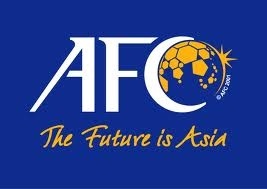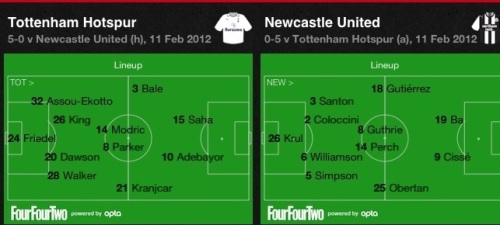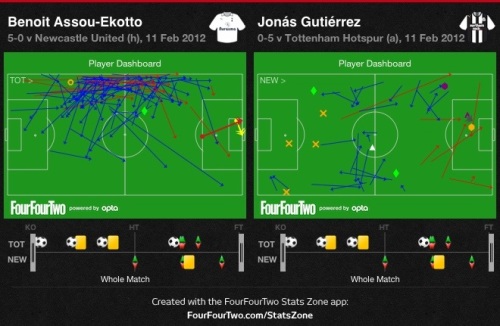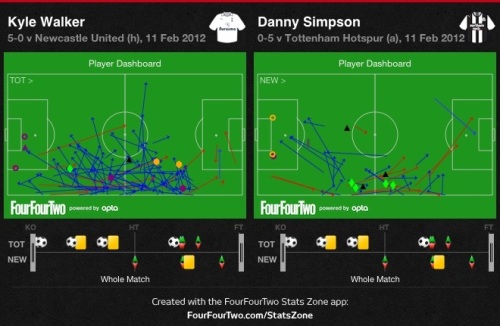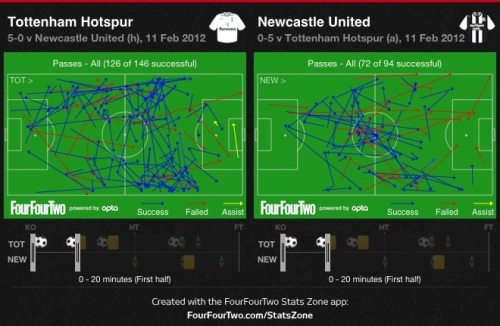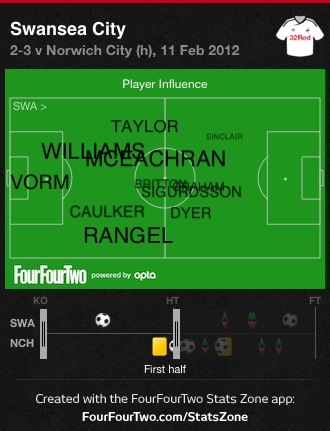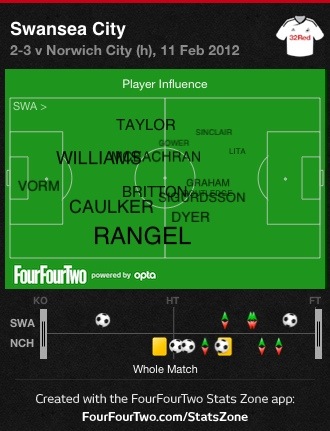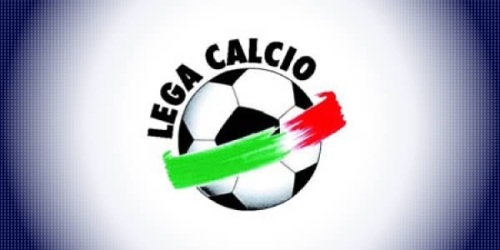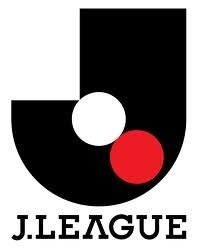Absolute Thai Football
March 2, 2012
Reverse Alchemy: FAT Chance for Thai Football

Subject: March 8th 2011. A great opportunity
Son I have a job for you. How about running football? All you do is welcome the sponsors in (the TV contracts are already signed) and plenty of European clubs are keen as mustard to work with us. Sorry I can’t be around for the Olympic qualifiers, but you’ll easily beat Palestine; they haven’t played a home game in their history! I’ll book the tickets for London 2012 while I’m away and make sure we get good seats.
I know you have it in hand (I saw the Post It on your desk) but just make sure that Sutjarit Jantakolin doesn’t go to Palestine. I know FIFA have probably forgotten the red from 2008, but it’s better safe than sorry. I know he played in the Asian Games last year, but I’m pretty sure those games weren’t sanctioned by them. Imagine if we won the game and a three nil defeat was put on our record! Sorry to nag, but that’s dads for you.
Take care son. This is the best gig ever.

Don’t forget to ask the guy who checks your desk to ask the guy who writes your report to check that player!
Subject:: March 10th 2011. Booted Out of the Olympics!
Blimey son, what happened there? Don’t worry. I’ve launched a pointless appeal with my friend Mohammed Bin Hammam (he’s been really generous with the FIFA Goal grants for the piece of land at Nong Jork that I don’t own.). I’ll tell the AFC Sutjarit was in the Thai squad at last year’s Asian Games but didn’t play. I know it’s weak, but if you keep losing your Post Its what else can I say? By the time that’s done the SEA games will take the heat out of the situation. We’re bound to do well there and the little Olympic oversight will be a thing of the past. If things get a bit tricky I’ve promised England my vote for their World Cup bid. I know I’m not going to vote for them, but they’ll play us next June and, by the time they realize I voted for Spain and Qatar in December, it should be too late to change. If they win the vote they’ll forget about my promise anyway. One vote shouldn’t make any difference.
May 6 . Still in business.
Things got a bit tricky with the FAT President vote. I was about to lose and then I realised: I am the President. I can stop the election whenever I like! All this nonsense about a slump for the national team and poor organisation gave me a great idea. Agree! I told them the election wasn’t organised properly, giving me just enough time to strong arm a few votes before the next election and I’m back on the gravy train. Even better than that, technically I wasn’t even the President as my term had expired, but no one dared tell me: they’d have to deal with me once I got back in. Peachy! Have to say though, I was pretty gutted that the election had more than one candidate. I don’t know what Pichate Munkong thought he was doing standing against me. That is duly noted the next time Thai Port need our help.

Daddy Cool Saturday May 14th 12:22 2011 :
Get Triesman! Can’t believe he used his immunity in the House of Lords to say I wanted TV rights for the England game to vote for their World Cup bid.
Daddy’s Boy Saturday May 14th 12:23 2011 :
I thought you did?
Daddy Cool Saturday May 14th 12:22 2011 :
I absolutely deny that and have never taken part in anything illegal. Now get off the computer and call me on the secure line.

November 3rd. Let’s finish the year on a high.
SEA is a great way to bury the other bad news. Just get through the group stages and then I’ll dampen expectations with the floods and the extra Toyota Cup matches ( don’t tell them they were my idea.) Malaysia and Singapore will be tricky, but one win is realistic and Singapore and Cambodia are both beatable. Nine points will get you through, so three wins will do us fine.

November 17th. Don’t talk to anyone.
December 2nd. We’re back on track
Son: I called the English FA earlier in the year checking they’d still play us if I didn’t vote for them. They said they would, so not only will I vote for Spain and Qatar, but when England get through the first stage I’ll have a public rethink. My vote will be gold dust.
 December 3rd. Everyone sold England down the river. 50% of their votes was their own!
December 3rd. Everyone sold England down the river. 50% of their votes was their own!

December 4th. England have cancelled the match next June. Where is their honour?
March 1st. We need some good news!
Son – I noticed the four Buriram lads weren’t on the Oman flight. With all the injuries we really can’t do without Siwalak, Suchao, Jakrapan or Jiwarat. I was glad to hear that Sompop Nilwong had his passport, but I forgot to register him with the AFC. Maybe if you ask them nicely he could play? Tell them we promise not to do it again. I’m getting some grief from the coach just because we forgot to book the friendly match with the UAE and replaced them with The Maldives. He’s just bitter because only five players turned up for training and he had to pay for the 20 actors to make up the squad photo. He is so ungrateful. I might change coaches for the finals in Brazil.

March 2nd. Problems solved: Let’s host the World Cup!
We’re aiming for 2026 or 2030. It is so important that everyone gets behind the bid and that no one makes any accusations of corruption or unprofessional conduct. If they do, they will be the ones to blame if the bid fails. Sometimes I just love being me .
March 1, 2012
Dead End: The Dark Side of the Football Dream
Last month’s suicide of nineteen year old Cameroonian footballer Eric Dzetzam from Sawan FC whilst trialling at fellow regional league team Kamphaeng Phet highlighted the vulnerability of young men as economic migrants. The player had told other foreign staff that he only had forty Baht to his name and was having problems with his last landlord. He felt he had nowhere left to turn.
The glamour of football success suggests their plight is less traumatic than a sweatshop slave or trafficked sex worker, but players are just as powerless. Like an imported “hostess” forced into a massage parlour, lying to proud families back home is as painful as the truth that you play to a handful of people for a pittance in a regional league. The amount of money sent back to support the family masks the fact that this is all there is, not a percentage for the folks back home. Another phase of vulnerability sees choices continue to narrow.
Players coming to Thailand, particularly from Africa, often give everything to their families before they arrive. Any money they have, mobile phones, even clothes are often left behind making them open to poor treatment, but unable to buy a flight back home. Three years ago I gave an old pair of boots to Yaya, now playing for KAA Ghent, because he had nothing to wear. They were far too big for him, but he had no choice. Now he has boot deals and a good living in the Belgium top league, but the line for him then was very fine indeed.
Players arriving on spec are the most vulnerable, but contracted players from Africa receive the worst treatment in poorly run clubs. One Thai team had them sleeping on a mat in a rifle range and, when a player’s wife and child joined him, was told they would also stay there. He was lucky that his ability allowed him to leave and join another club, but he is a rare breed.
Last week the Thai FA openly admitted there are no sanctions for clubs who don’t pay their players. Even after due diligence, a contract and the correct visa, there is no pay guarantee and no right of recourse. Returning home with the shameful sting of failure makes him feel compelled to agree if they tell him to join a lower league club on the other side of the country.
So what can be done? Having the same foreigner ratios as the rest of the AFC should make it easier to compile a database of foreign nationals in all the leagues. Overseen by the players’ home embassy, a minimum standard of treatment needs to be drawn up in line with the J and K Leagues. As the status of Thai football continues to rise within the AFC, players should not be able to arrive on a wing and a prayer. For a UK visa players must have played at least 75% of his home country’s senior competitive international matches (where he was available for selection) in the previous two years for a top 70 FIFA ranked country or he won’t even get into the country.
Thailand needs to apply the same foreigner rule to academy teams as the senior set up so that the filtering process of talent is more based in a player’s country. If a club brings someone over who has no chance of a career in the game, they have used up a valuable space. Once an academy player has been selected and brought over, he should be given a two year contract to settle, learn Thai and show his abilities rather than being sent home in short order if the potential for stardom is not spotted immediately. The English FA foreign player rule ensures that a “home grown” player may be foreign, but they will have received plenty of support and an education that gives them other options in the future:
“irrespective of nationality or age, {they} have been affiliated to the FA or Welsh FA for a period of three seasons or 36 months prior to {their} 21st birthday”
In England, a Tier 5 (from teams that must play in the FA Vase rather than the FA Cup) player doesn’t need to show English skills, but they can only move up to Tier 2 once they have passed an English language test. If, after 12 months, he can’t meet the English requirement, he must return home and reapply for Tier 5. So there is a clear process rewarding players for getting the skills needed to assimilate more easily into the country.
We are all economic migrants, moving to where the work is, protected by labour law and embassies, able to get visas that protect our interests and supported by employers. Unfortunately, the safety net of protection and legislation is enjoyed by an articulate minority whilst the voiceless majority have only the choice between a rock and a hard place. Many of us have the added support of a union. The Professional Footballers’ Association (PFA) is a trade union with 4,000 members that has a long history of staunchly supporting the rights of players. As well as helping injured and former players gain training and employment, they collectively bargain agreements to ensure the best deals for the often forgotten players in lower leagues who undertake potentially short careers earning less than the average wage.
The glamour of football is a heady brew. In Thailand the top players are famous and command salaries even higher than leagues like Australia and Singapore. But below this glamorous, glossy surface are players hungry for a chance. The African regional league player sleeping outside the team hotel when Muang Thong travelled to Buriram last season was, as a father, the saddest sight to see. There has to be a better way to help the talented foreigners succeed, but also stop the dreamer sleepwalking into a situation that becomes a nightmare.
February 29, 2012
Quitters Sometimes Win: Walking Away From Sport
Fighting to retain his WBC Welterweight crown in 1980 against Sugar Ray Leonard, Roberto “Hands of Stone” Duran sensationally quit in the eighth round, whispering the infamous words “no mas” (no more), that would define his 119 fight career. But what else can athletes do when their fire burns out?
After sacrificing everything, success comes definitively with a title win or championship, but now contracts and career plans form an arc that inevitably describes your slow demise, or sudden implosion. Sometimes you need to go out on your own terms. Eric Cantona quit at 30 after a season that showed hints of decline.
“When you quit football it is not easy, your life becomes difficult. I should know because sometimes I feel I quit too young. I loved the game but I no longer had the passion to go to bed early, not to go out with my friends, not to drink, and not to do a lot of other things, the things I like in life.”
Cantona bowed out in the full glare of the spotlight, instead of waiting for the footlights to fade. But, like his (in)famous seagulls and sardines comment, he knew that the birds would soon find other fish to feed on:
“I’m so proud the fans still sing my name, but I fear tomorrow they will stop. I fear it because I love it. And everything you love, you fear you will lose.”
The recent loss of Gary Speed threw our moral compass off kilter. At the inquest his wife revealed his talk of suicide. A married monogamous man with two children, a stellar playing career and a burgeoning Welsh coaching role camouflaged the fact that, to a “deep man” who “didn’t relish the limelight,” success had no value. We needed to know why he made the ultimate exit, but there was no revealing suicide note or lurid tales of drug abuse and infidelities to rationalise his act, no feet of clay from the man at the end of the bar who used to be Someone. Perhaps he was the ultimate victim of success. The fire to reach the top quenched by a fear of failure amidst consistent achievement. Looking in from the outside, we barely understand their conflicting feelings after success. The selfless sacrifices that achieved the victories cease, but the same levels of performance are demanded week after week: it’s the Difficult Second Album syndrome.
In his excellent autobiography, Full Time: The Secret Life of Tony Cascarino, the Irish striker’s “little voice” convinced him, at key moments, he was destined to fail. Excessive gambling was an effective way to prove the voice right; the inevitable failure of a gambler became his escape from the rigid, repetitive structures of training and playing. Compounded by numerous infidelities Cascarino became successful at failure when his career was increasingly a failure of success, but at least he accepted the brutal truth of the collateral damage his self harming behaviour caused:
“I was so wrapped up in my newfound celebrity that I’d become immune to the suffering I was causing”.
Cascarino’s honest assessment revealed the sportman’s haunting paradox: unable to enjoy your status, but trapped inside it:
“I play football because I have to play football. I play football because I know nothing else.”
Carlos Teves has accepted his £9.3 million pounds hit in fines, lost wages and bonuses, but the preceding events showed a man uncomfortable with his role. In 2010 he revealed to his team mate Roque Santa Cruz that he was “not enjoying the life of a footballer.”
Manchester City hoped a supportive environment would help him settle but, on September 27th last year, his refusal to play against Bayern Munich meant the gloves were off (even if his weren’t). The only thing worse than his walk out may be him kissing the City badge the next time he scores, but will his army of advisors suggest he ditches his dummy sucking celebrations? I hope not.
Tevez’s consistent plea that he missed his Argentinian family is dangerously off message and honest for crowds vicariously living their life through him. The need to dream ramps up the pressure to provide escape. When the drudge and sacrifice of humdrum existence shuffles towards the weekend, fans don’t want to hear about brittle minds and homesickness.They demand pedestals and perfection. As a grieving Brazilian woman said about Ayrton Senna’s death:
Brazilians need food, education and health and a little joy. The joy has been removed.
People didn’t want to hear about Senna’s sacrifices, his hatred of the politics and money dominated world of Formula One. When asked for his favourite career memories he described the season in go – karting. That, he said was racing, pure racing. But he couldn’t leave his high octane world any other way than that tragic exit. In tough economic times he represented the last piece of national pride many Brazilians felt. Walking away would not be a Cantona deification, but a nation let down. Like a drug, racing held him too firmly anyway. He needed the intensity to make him feel at peace with himself.
Unlike Formula 1 or boxing, an old football pro can glimpse moments of former glory. A fighter may train and a driver may practice, but they will never relive the white hot intensity of competition . A footballer can play for Plymouth and play at Old Trafford in a cup match, where he may conjure something special from his muscles’ memory. These are dreams he clings to on the coach to Crewe.
Players tumbling down the divisions are often seen as faintly desperate, but doing it on their own terms, as Speed did dropping down from Newcastle to Bolton and then Sheffield United, keeps their dignity and self determination. Players are a short time playing and a long time retired. There are worse things than hoping for one last hoorah before the end. The alternatives are often too grim to contemplate.
February 27, 2012
Warts and All: Supporting Thai Football
Last week’s Swansea and Norwich game saw free flowing passes, players colliding and getting up (even after coming in contact with Grant Holte) and the only player whose injury halted play was unable to continue. At 3:1 up Norwich chased a fourth rather than kill the clock and a passionate game ended with both sides feeling positive. There were more high profile, “glamorous” games played, but this was a dead cert for entertainment.
In Thailand Holte would have his own seat in the stands for a rolling sequence of suspensions, the away team would rarely play two up front with two wingers (as Norwich did) and the stretcher bearers would need Olympian lungs if the visiting team went two up. But, perhaps perversely, the flaws and frustrations of the game in the Kingdom make us feel closer to an unfinished product, the glaring weaknesses like your children’s endearing eccentricities and your acceptance of what is about to happen creates a curious calm.
EPL games are the product of a century and a half of evolution. Mistakes by officials and players occupy the topmost margins of human error as we sit in the box at Saddlers Wells watching the finest global show, but sometimes it’s more fun at the pantomime.
The advent of extensive TPL coverage has eliminated the worst excesses of the early days. Players bullying referees and the infamous gun brandishing after the Nakhon Pathom and Si Sa Ket game are rightfully (hopefully) consigned to the bin of history. But part of me misses the walkoffs. In most countries this would be an incendiary prelude to tribal violence, but in Thailand it was a selective comfort break with a beautifully Thai response from the FA. Teams walking off were given a fifteen minute limit. Now beer is allowed at stadiums, I submit a subsection correlating the duration of walk offs with the length of the queue at the bar. Stranger things have happened. I was refused entry into my local stadium as the beer cup I was holding did not have a Leo logo. Explaining that no other beer was available and they were unlikely to show a close up of me in ad mode supping my amber nectar in the ten thousand strong crowd was enjoyably pointless, as was the request at the stadium bar to pour my contents into a logo’d cup.
“Partnerships” with massive European clubs and a lack of an academy structure creates a brand without a product. Thai football should should embrace its identity, warts and all. Fans constantly cheer their own team, not attack the opposition with the “filth” that shocked Harry Redknapp, families come to games and travel the country together, the hard core fans drink towers of whiskey through the day but don’t slip into the late night violence seen on English High Streets. There’s plenty to love in Thai football, but it will never be the EPL. And that’s why we love it.
February 17, 2012
Go East: How The Footballing West was Won
After decades of condescending aid with strings from the UK, India described the latest carrot of £1 billion as “peanuts.” Economic powerhouses have shifted East and the West is caught off balance. In Thailand, satellite company Truevision’s three year EPL deal ends this year and league chairman Sir David Richards says four other companies are in the bidding mix. Richards estimates broadcast rights for the next three years will cost around Bt10 billion (£205 million,) about 30 per cent more than True paid in 2008. Whilst this means that the English rights owners will consider it a great business, this is peanuts to the Thai media. The West doesn’t understand how the deep pockets of the East are now subsidising the reckless debt hangover of the West.
Manchester United’s $1 billion flotation in Singapore was quietly kicked into the long grass. Officially due to “market volatility,” by choosing the Far East for the Initial Public Offering the club expected starry eyed Asians to lap up vastly overvalued shares like the overpriced beers in Manchester United Sports Bars. But Asians thrive when underestimated. Arch negotiators and pragmatists, they understand the West holds football’s Crown Jewels and they have to pay dearly for a glimpse, but they also know the owners are bankrupt, the clubs are diving headlong into financial meltdown, only propped up up benevolent billionaire benefactors and it is only a matter of time before the price comes down. As the J League One Hundred Year Development Plan shows, the West may have the watches, but the East have the time.
Glasgow Rangers’ potential tax bill of £100 million and their 10-point penalty may grab the headlines, but they are not the only club whose use of the complex tax avoidance device, Employee Benefit Trusts sailed them far too close to the financial wind. Up to eight current or former Premier League clubs are facing a similar investigation into their use of EBTs, which were considered an efficient (and legal) means of reducing tax until relatively recently. Under EBTs companies pay money into a trust that then loans the money to the employee for benefits, typically pensions or for the purchase of shares, on the understanding that the loan is never repaid. HMRC alleges that Rangers’ previous owners simply used EBTs to avoid paying millions of pounds in tax and National Insurance on the player payroll.
In the same week Portsmouth applied to enter administration and face a points penalty for the second time in two years, having been issued with a winding-up petition by HM Revenue and Customs over an unpaid tax bill of £1.6million. In February 2010, Portsmouth became the first Premier League club to enter administration and were deducted nine points.
These two well supported clubs with a proud history have, like so many others, overreached themselves. Rangers tried to match EPL clubs with high profile signings like Paul Gascoigne and Dick Advocaat who commanded unsustainable pay for a league where only two teams compete for league honours and any teams outside Glasgow need to feed on crumbs from the rich men’s table.
Saturday’s Leicester and Cardiff City Championship game pitted Thailand (King Power) against Malaysia and Thai script pitchside ads wrap themselves around Premier League games as fans consume 40,000 bottles of the promoted product on Old Trafford match days alone. In Saturday’s game Malaysia beat Thailand 2:1, but off the field Thailand is streets ahead. Malaysian company Mister Potato are the “global snack partner” of Manchester United, but their RM 10 million (£2 million) annual investment is small potatoes compared to the profile enjoyed by Thai businesses. Whilst Malaysia have a Premier League club in struggling QPR thanks to Air Asia and Genting Casinos shirt sponsorship of Aston Villa, Thailand’s profile and, more importantly, influence is much stronger. Big Cola are partners of Everton, Stoke City, West Bromwich and Wigan whilst Chang have been Everton’s main sponsors since 2004 and recently signed a new £12 million agreement. Singha give an annual £2 million to the Red Devils and Chelsea. Things have come a long way since Thaksin “Sinatra” Shinawatra offered a Thai meal on the Eastlands centre circle as a raffle prize.
Chelsea’s Singha sponsored visit to Thailand last July used the jingle ” here to play, here to stay.” That trite phrase disguised the power shift. Chutinant (Nick) Bhirombhakdi, the Executive Vice President of Boonrawd Brewery, calls the shots. Instead of Chelsea bestowing their largess over a second world company, their visit was part of Nick’s strategy bringing over Manchester United next year and then both clubs in two years to play each other in the kingdom. His financial input is an investment, not a fans’ sacrifice. And he expects results, not platitudes. Rather than begging for a place in a team photo he expects a 5% increase in English Singha sales. Straightforward, clear and specific. Chelsea need to deliver.
Everton CEO Robert Elstone understood the developing seismic power shift and planted seeds for the future. As well as the razzmatazz of the Chang agreement, people on the ground in the kingdom train, scout and assess mutually beneficial practical relationships rather than photo opportunities and a fading club pennant. People like Ray Hall know what to look for in Thailand and their assets are not shirt sales and fan club members, but academy players to move both Thailand and Everton’s plans forward.
For decades English Premier League teams would fly East to collect their appearance money, play a half hearted friendly before bolting back to their business class comfort zone. Players could get away with boorish behaviour ( Mister Barton and cigars in a team mate’s eye, for example) as the Gods of Football. But things they are achanging. The AFC slogan needs to be read carefully by The West. It is no longer an empty and over ambitious slogan, but a clear statement of fact.
February 12, 2012
Gone in Twenty Minutes: Tottenham 5 Newcastle 0
Stats Zone
Gone In Twenty Minutes
Tottenham 5 Newcastle 0
The lineups were the same, with both teams playing a four four two formation using two wide players, a brave but foolish move by the visitors. Bale and Kranjcar’s domination over the fast but inefficient Obertan and the lumbering converted defender Guttierrez bordered on embarrassing at times. However, the real engine of Newcastle’s destruction was the performance of Walker and Assou – Ekotto in the Spurs defence. Their constant harrying of the Newcastle defenders and disciplined positional play stopped the Geordies feeding their Senegalese strike force with anything meaningful. Spurs’ 676 passes not only dwarfed the 347 of Newcastle, but their completion rate of 89% compared to Newcastle’s 78% was telling.
Key Comparisons
The most glaring contrast was between Ekotto and Gutierrez. The Spurs man’s constant, structured passing contrasted hugely with the Spaniard’s search for possession. If a fan new to the game analysed Gutierrez’s dashboard below they could think he was a right midfielder or a particularly ineffective centre forward.
The story wasn’t any better for Newcastle on the right side. Comparing Kyle Walker and Danny Simpson throughout the game shows an even bigger inequality of effectiveness.Walker creates huge intensity of attacking options, with only one, successful, cross field pass. Simpson’s play is ragged, often forced to defend against the swashbuckling Spurs man and forced into long, hopeful and often incomplete clearances.
The Killer Twenty Minutes.
Spurs destroyed Newcastle with highly accurate and probing passing allied to exceptional movement off the ball. Fifty more passes than your opponents in twenty minutes is breath taking at this level and, again allied with the level of pass completion and pitch coverage of the passes, it created carnage. Whilst Spurs looked to group passes wide left and right in the Magpie’s half, Newcastle tried unsuccessfully to pass centrally: no passes even approached the Spurs’ penalty box.
What else could Pardew do?
Perhaps the super charged Prince Harry Redknapp atmosphere undid Newcastle as they became their own worst enemies. Trying to fight fire with fire they were outdone particularly by the movement of Adebayor. They clearly tried to play a narrow game which could have helped dissipate the atmosphere, but why choose that tactic whilst selecting two wide men? Taking off Obertan in the 46th minute for the more workmanlike Ferguson shut the stable door after the horse had bolted and the introduction of Gosling and Lovenkrands, two relatively limited but hard working players, could have kept things tighter at the start. Cisse’s great goal last week and Ba’s excellent form made it tough for Pardew to drop them, but a brave manager would have quenched the cry of Harry for Saint George with a goal less first half and brought on more threat in the second.
February 12, 2012
Using Statistics: Swansea 2 Norwich 3
Away from Middle Eastlands, this season is a tale of two Citys. Swansea in tenth and Norwich in ninth lost only one of their last five league games. The Canaries have, in Grant Holte, a burly throwback striker combining the battering ram from his Shrewsbury Town days with the quick feet that bamboozled Everton defenders last December. Both sides recently lost to resurgent Sunderland but the two coaches, Irishman Brendan Rogers (who signed a new three year contract this week) and Scotsman Paul Lambert insist on style with substance, signing players that fit into an attractive, dynamic system.
A Higher Tempo Turns Weaknesses to Strengths
Swansea City 2 Norwich City 3
The First Half.
Norwich started with much more possession than their host, concentrating on attacks down the left midfield channel. Swansea, by playing Williams and Caulker deep gave Norwich mo freedom, but coped well with crosses. Norwich played a higher defensive line to pressurize top scorer and lone striker Graham. However, this created space behind the Canaries’ back line that Sigurdsson and Dyer exploited to excellent effect. The Swansea goal on 23 minutes was a neat summary of the defensive decisions and their consequences. A disguised reverse pass by Sigurdsson to Dyer in a central position was then laid off to Graham in the left channel to powerfully drive home past Ruddy.
Norwich’s larger and stronger players found Swansea’s pace and angles troublesome. It makes the higher defensive line surprising when the angles and movement of Swansea kept the Norwich defenders from interacting effectively with their midfield. Drury’s frustration showed resulting in his 43rd minute yellow card for a crude lunge on the mercurial Dyer. Norwich had plenty of possession and forty six more passes than their hosts, but too often they were executed without menace.
The Second Half.
Norwich’s immediate increase of tempo meant their high defensive line allied to faster passing and pressure on the ball carrier caused panic amongst the Swansea defence, especially for the second goal which Pilkington will claim, but was an own goal. The harassing of the Swansea players in possession gave the previously influential Dyer and Sigurdsson far less effective possession, leading to Drury’s substitution in the 57th minute.
Player Influence.
Despite his thoughtless shirt pull for the Swansea penalty on 87 minutes, Grant Holt had an extremely influential game. As well as scoring the third goal, his hold up play and distribution was excellent.
The shape of player influence altered as Norwich increased their tempo. In the first half, with much of the play concentrating on the left side, Bennett and Martin on the right had less input in attacking moves. However, in the game as a whole, the influence points were much more centralized as Norwich seized the opportunity the pressurize the deep lying Swansea defenders.
href=”https://absolutethaifootball.wordpress.com/wp-content/uploads/2012/02/20120212-004243.jpg”>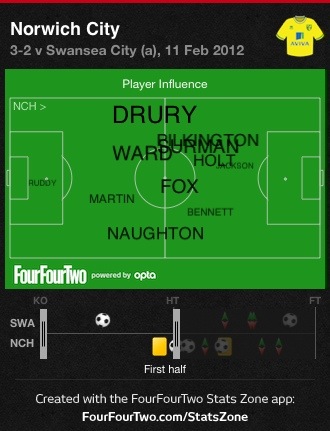
href=”https://absolutethaifootball.wordpress.com/wp-content/uploads/2012/02/20120212-004400.jpg”>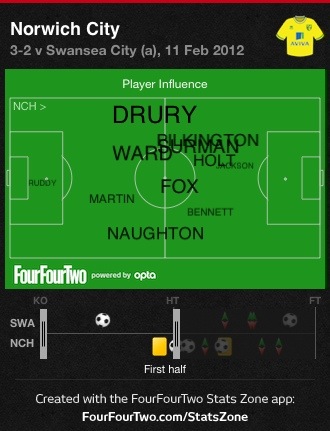
For Swansea, a positive first half display was reflected in strength through the middle, whereas overall the wide play of Rangel was effective, but the influence of the players he tried to find in the centre diminished.
InsertedImage.jpg
<a
<a
<a
February 11, 2012
Learning From Other Leagues: Serie A
League Coefficient
The European League Coefficient decides how many of a country’s clubs will play in the Champions and Europa League based on their results over five seasons in those competitions. It’s two points for a win and one for a draw and then the season’s total is divided by the number of teams from that country. Serie A is ranked 4th behind The Premier League, La Liga and The Bundesliga.
In world team rankings, Milan are the only Italian team in the top ten, with Spain,Germany and sixth ranked league Portugal each having two teams, whilst England has three.
League Winners since the formation of the EPL in 1992: 5
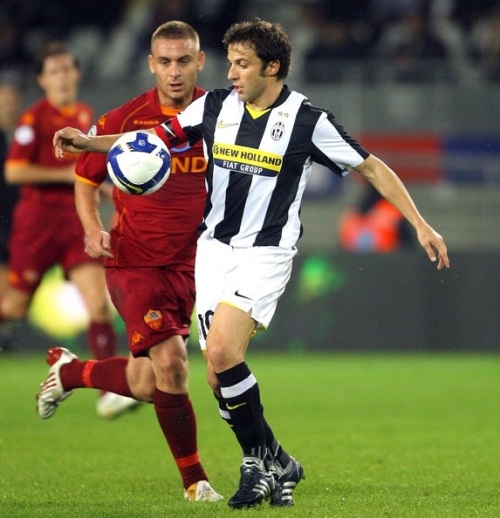
The 2006 scandal
Juventus finished as champions but were later stripped of the title. The scandal surfaced after Naples prosecutors investigated Italian football agency GEA World. Transcripts of telephone conversations published in Italian newspapers suggested that, during the 2004/5 season, Juventus general manager Luciano Moggi had undue influence over referee appointments. This is a useful story to read in Thailand where the selection of officials is opaque at best, with the most famous example being Thanom Borikut, a former contender to officiate at the 2010 World Cup. He was arrested for allegedly murdering his boss who, Thanom claimed, treated him unfairly and stopped him officiating overseas as a FIFA referee. Football Association of Thailand president Worawi Makudi said it would be a pity if Thanom was found guilty because he was a candidate to officiate at the {2010} World Cup.
You might want to read that last sentence again to let it sink in. Murder, confession and second chance. The fist time he officiated the game between Osotsopa and Muang Thong, he managed to red card the MT goalkeeper in the first half and spent the game looking bemused as the future league winners went on to win 4:1. I wonder why…
Back to the Italian scandal: runners up AC Milan were also implicated, meaning no championship was awarded that season. In Thailand there is no need for the multiple, foreign bought SIM cards of the Italian style. We have politicians on the bench. For a lowly paid official, the sight of a high ranking politico berating him on the touchline invites a foreign viewer to assume that the the politician’s presence has an effect. Whilst this is banned in the AFC, Thailand seems to be playing a get out of parliament free card. It will be interesting to scan across the bench at Nakhon Si Thammarat next season to see if the deputy agriculture minister Nattawut Saikua and the club’s “chief adviser” is wearing boots.
Number of Teams
For most of Serie A’s history it was a 16 or 18 club league but, since 2005, there have been 20. Juventus are currently one point ahead of Milan and, over the last three years, the title has been won by an average of 6 points. This is similar to the five point margins for Germany and Spain. The seven point average in Thailand is skewed by the 16 point gap this year as the previous two years only had a gap of two and three points. To see the percentage that the bottom team achieved of the champion’s total helps assess a league’s health. Italy’s bottom team gained 33% of the champion’s total over the last three years, Spain and Thailand achieved 34 % and Germany achieved a healthier 39%.
Attendances
Inter Milan are currently the best supported side with an average attendance of 53,000, whilst fellow Milanese club AC come in second with 50,785 and in third is Napoli with 47,454. The lowest average attendance is for Chievo at 9,750 and the league average is 23,827.
Having a lowest attendance 18% of the highest compares unfavorably with other major leagues. The EPL’s ratio is 22%, the Bundesliga is 27% with only the Barca / Madrid dominated Spanish league coming in lower, at 13%.
Foreign Players
In 2010 the Italian Football Federation (FIGC) halved the number of non EU players clubs could sign to only one per season to replace another non EU member of the squad. The decision was made following Italy’s shock exit from the World Cup finals in South Africa,where the reigning champions were sent home bottom of Group F.
Players’ Wages
There are no limits placed on wages, allowing the top spenders to shell out 16 times as much as the lowest with champions Milan spending €130 million whilst Cesena laid out €8 million.
Champions League and UEFA Cup places
The top three teams qualify directly to the Champions League group phase, with the fourth-placed team in the qualifying stages. This is a new, and worrying, development for the Italians now the previous fourth place belongs to the Bundesliga, creating a vicious circle of less teams accumulating less correlation points creating a possible future cut. Teams finishing 5th and 6th qualify for the Europa League.
Media coverage
Italian pay TV operator Sky Italia and broadcaster Mediaset own the rights to three seasons starting this year. They will pay an average of €560 million (£464 million) each season for the rights to all 20 teams. Mediaset’s package is worth about €265 million (£219 million) each season for the rights to 12 teams. Overall, the deals are worth about five per cent more than existing deals.
In Conclusion
Whilst a top four European league, the momentum is faltering for the Italians. Its coefficient score has dropped by over 2 points in the last two years. Whilst the gap between them and the Bundesliga above is 12 points, the margin below to France is only 5 points and 6 points to Portugal who are the lowest country with 3 Champions League places. Serie A has a perception problem of negativity and defensiveness . Of the four Leagues, it had the lowest goals per game ratio last season of 2.61. La Liga had 2.71, The EPL had 2.77 and The Bundesliga had 2.91.
February 8, 2012
Learning From Other Leagues: The J League
This decides how many of a country’s teams play Champions League and AFC Cup matches. It’s based on the football competitiveness, professionalism, marketability and financial health of the league and it’s updated every two years. For the 2009–2010 season, the J League was number 1 in the East Asia section with over a hundred more points than West Asia leaders, Saudi Arabia.
In world team rankings, Korea’s Jeonbuk Motors are the first Asian team in 51st place, Al Hilal from Saudi Arabia come in 55th and fellow countrymen Al Shabab place 124th. The first Japanese team to feature is Nagoya Grampus in 154th place, rising 47 places in a year.
League History
The eight team semi professional Japan Soccer League (JSL) started in 1965 supported by large Japanese companies like Nissan and Yamaha. These teams went on to found the J.League, but company sponsored teams had limited fan appeal. So, in 1991, the Japan Football Association announced the basic structure of the new, professional, ten team league. On May 15, 1992, the first J League match kicked off in front of 59,626 fans at Tokyo’s National Stadium.
The league’s excellent grass roots support tempted the league into rapid expansion. Increasing to 12 teams in 1994 and annually up to 18 (its current number) in 1998, this was unsustainable back then. Several clubs struggled financially and attendances fell, forcing a restructure. Thailand needs to take heed. Whilst Thais have a great love for the beautiful game, if they see a bloated TPL shot through with massive inequalities of talent and stadia ranging from the palatial (Buriram) to the ramshackle ( Samut Songkhram) they will be much less motivated to watch. Japan addressed this by reducing the J League to 16 and creating a second division for teams whose size and financial backing was enough to make them viable, but not quite strong enough for J League entry.
The role of foreign superstars in the early days of the J league.
The day after Robbie Fowler’s acrimonious departure from Muang Thong United (“The president and CEO of mtutd know why I quit and it certainly was nothing to do with results…” @Robbie9Fowler) the role of stars like Zico and Gary Lineker in the J league is a sobering lesson for Thailand.
The huge star names came in the boom times for the Japanese economy and, foolishly on reflection, the J League made the same mistakes as the North American Soccer League. Whilst the New York Cosmos became ” the most glamourous team in world football” according to their President and propelled the league to new heights, its popularity fell mainly on one man’s shoulders. When Pele retired in 1977, the whole league went into decline and eventually folded in 1984. The J League was formed as Japan’s economic bubble burst, so after the early years of Arsène Wenger and Linker, the clubs had to scale back on recruiting foreign talent. Nowadays, wisely, the J-League attracts foreign players but its main focus is on the Asian Champions League.
The J League’s success has also benefitted the K-League. Cut off from the footballing boom of the past decade and forced to prove their financial viability by a strict ruling association, the growth of the J League helped create an East Asian bloc that is well placed to weather the footballing bust. This is where Thailand must mature, in the young and dynamic environment of East Asia rather than the choppy waters of the West.
The Hundred Year Development Plan
Essentially a process of infrastructure improvements and J League expansion, many feel it also aims to replace baseball with football as Japan’s favourite sport. Although much of the plan will need revisiting, this overarching roadmap of the future gives sponsors, fans and clubs a real feeling of trust and traction. I wait with interest to read the Thai FA fifteen year plan…
League Winners since the formation of the EPL in 1992: 8
Attendances
Urawa Red Diamonds are currently the best supported side with an average attendance of 33,910, Albirex Niigata come in second with 26,049 and in third is Yokohama F. Marinos with 21,038. The lowest average attendance is for Omiya Ardija at 9,099 and the league average is 15,715. Having a lowest attendance 46% of the highest compares very favorably even with the EPL, which has a ratio between QPR and Manchester United of 22% and is a 19% stronger ratio than even the Bundesliga.
Foreign Players
Each club can field four foreign players if one of them is a non Japanese Asian. However, two players can be added to this limit if they are under 20 years old. They can also be promoted to the top contracts during a season. This incentive for young players to join elite pay needs Thai attention. It creates a fast track for skillful youth players, inviting them to prove their worth, instead of bouncing between the academy and senior systems whilst losing momentum.
Champions League and UEFA Cup places
Four Champions League places.
Players’ Wages
For the top professional contracts (Pro A) players can earn an annual minimum of ¥4.8 million (£40,000). There is a cap of ¥7 million (£60,000) for the first year, but no limits after that. This seems a sensible solution to superstar pay. If they make the commitment to play for a year before their mega deal, the club and fans get chance to assess their fitness, character and motivation instead of gambling on a huge initial outlay.
In Conclusion
The relatively low world rankings of J league teams masks a highly organised, financially sound federation. Rather than mortgaging the future to ape the western model, they target success within the AFC region. So, when the boom and busts of the west occur, even though Japan’s economy remains sluggish, the J league has a depth of strength and an underpinning from the Hundred Year Plan that makes it the Bundesliga of the East.
